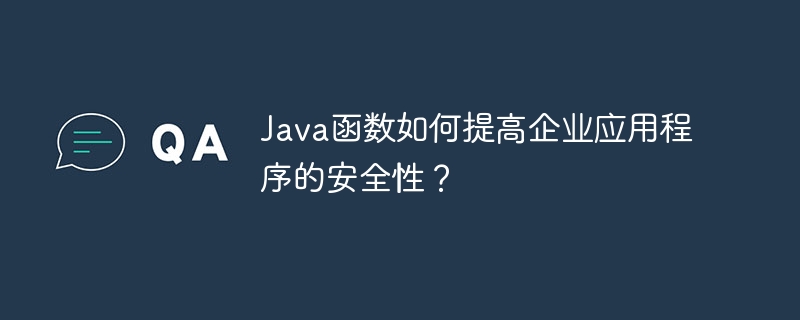
Java functions provide a powerful tool for enterprise application security, reducing the risk of cyber threats through features such as type safety, memory management, exception handling, encryption, and hashing. In addition, practices such as role-based access control further enhance security by granting role-based access to resources. When combined with best practices such as input validation, output encoding, and cross-site scripting protection, enterprises can create robust and secure applications. .

Java Functions: A Powerful Tool for Improving Enterprise Application Security
In today's era of increasingly serious cyber threats, ensuring that enterprises Application security is critical. Java functions provide a powerful set of tools that help developers implement secure coding practices to minimize the impact of vulnerabilities.
Main safety features of Java functions
Practical case: Role-based access control
Role-based access control (RBAC) is a security mechanism that grants access to applications based on user roles. Access rights to program resources. Java functions make it easy to implement RBAC:
import java.util.HashMap;
import java.util.List;
public class RBACManager {
private HashMap<String, List<String>> rolesToPermissions;
public boolean checkAccess(String user, String resource) {
List<String> permissions = rolesToPermissions.get(user);
return permissions.contains(resource);
}
} In the example above, the RBACManager class maintains a mapping of roles to permissions. checkAccess Method checks whether the given user has permission to access the specified resource.
Other security best practices
In addition to using Java functions, developers should also follow other security best practices:
Conclusion
By taking advantage of the powerful security features provided by Java functions, enterprises can effectively improve the security of their applications. Following security best practices is critical to creating robust, secure applications.
The above is the detailed content of How can Java functions improve the security of enterprise applications?. For more information, please follow other related articles on the PHP Chinese website!
